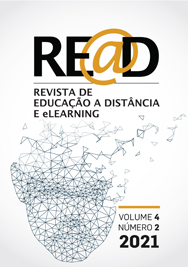Teorías de autorregulación educativa: una comparación y reflexión teórica
DOI:
https://doi.org/10.34627/vol4iss2pp116-148Keywords:
Self-regulation; Self-regulation theories; Motivation; Self-regulatory processes; Environmental influencesAbstract
Self-regulation is a skill that allows students to activate the corresponding learning strategies to achieve the established goals. There are seven major theories about self-regulation: operant, phenomenological, socio-cognitive, information processing, volition, Vygotskian, and constructive theory (Zimmerman, 2001). In this article it will be presented what each of these theories explains to the field through the analysis of five crucial features for self-regulation. First, what the origin of the motivation to self-regulate is. Second, how the self-awareness needed to self-regulate is acquired. Third, what the key processes for each of the seven theories are. Fourth, what the role played by the social and physical environment on self-regulation is. Fifth, how the self-regulation skills are acquired. Throughout the manuscript each theory will be analyzed in the light of these five features building a comprehensive framework on what self-regulation is and how to proceed to help students acquire it.
Downloads
Published
Issue
Section
License
Copyright (c) 2021 Ernesto Panadero, Jesús Alonso-Tapia

This work is licensed under a Creative Commons Attribution-NonCommercial 4.0 International License.
Os autores conservam os direitos de autor pelo seu trabalho e concedem à revista o direito de primeira publicação, com o trabalho simultaneamente licenciado sob uma Licença Creative Commons - Atribuição-NãoComercial 4.0 Internacional.



